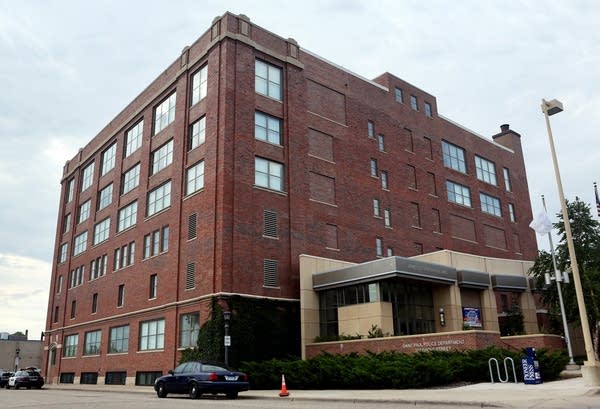Hearing on St. Paul Police crime lab problems wraps up
Go Deeper.
Create an account or log in to save stories.
Like this?
Thanks for liking this story! We have added it to a list of your favorite stories.

A Dakota County hearing that exposed problems with drug testing at the St. Paul Police crime lab concluded testimony today.
Judge Kathryn Messerich will now decide whether to allow evidence from four drug possession cases to be admitted into court. A ruling is not expected until early next year.
Regardless of the outcome of the hearing, the legal challenge has already led to major changes at the St. Paul crime lab. St. Paul Police Chief Thomas Smith suspended drug testing at the lab in July after employees testified they did not follow any written procedures and may have overlooked possible contamination of evidence. Smith also replaced the lab director and hired two companies to review the lab's work. That review is ongoing.
In response to the revelations about the lab, prosecutors have dismissed some charges and offered more generous plea agreements for many defendants. More than 100 pieces of evidence in other cases have been retested by the state crime lab. In two of those cases, the findings of the state crime lab did not match the findings of the St. Paul lab.
Turn Up Your Support
MPR News helps you turn down the noise and build shared understanding. Turn up your support for this public resource and keep trusted journalism accessible to all.
Despite all the controversy and changes generated by the Dakota County testimony, inside the courtroom the hearing focused on a narrow question that only applies to the four drug possession cases: Was the evidence that passed through the St. Paul crime lab so contaminated that the results of any retesting performed by another lab are not reliable enough to be admitted into court?
Over the past several months, defense attorneys Christine Funk and Lauri Traub called witnesses who testified about possible contamination of evidence at the lab. Former Bureau of Criminal Apprehension supervisor Glenn Hardin testified that the drug testing machines may have spewed illegal drugs into the air at the lab.
On Tuesday, defense attorneys questioned John Kroska, a privately employed service technician who repaired drug testing machines for the St. Paul lab. Kroska said the machines have filters that block illegal drugs and toxic chemicals from being released into the air and that the machines only use a small amount of drugs in the testing process. However, he said he cannot say with absolute certainty whether the filters worked.
Defense attorneys also questioned Kroska about the "white stuff" that lab employees previously testified had clogged the drug testing machines several times in recent years. Kroska described how he unclogged the machines by removing a "drippy goo" stuck inside one of the parts. He said the substance was treated as hazardous waste and he assumed the lab destroyed it. Kroska said it's possible the substance came from the liner of one of the pieces of equipment inside the machine, but without testing it, he said, it's impossible to know.
"I don't know what that stuff is any more than anyone else does," he said.
Dakota County prosecutor Phil Prokopowicz contended that while the St. Paul lab may have lacked written procedures, there was no indication of widespread contamination or other problems that would cast doubt on any retesting. The state crime lab retested the evidence in all four cases and reached the same conclusions as the St. Paul lab, he said.
On the final day of testimony, prosecutors called Bureau of Criminal Apprehension analyst Eric Grunwald to discuss the state crime lab's standard procedures. Prokopowicz later said the testimony was intended in part to challenge the defense's argument that the St. Paul crime lab was unreliable because it lacked written standard operating procedures.
Grunwald testified that the state crime lab does not have a written procedure for everything. Some decisions, like how to clean a work area, are left to the discretion of each scientist, he said.
Both sides will now prepare written arguments for Judge Messerich by Dec. 19. Messerich said her ruling will be issued sometime after Jan. 1, 2013.




